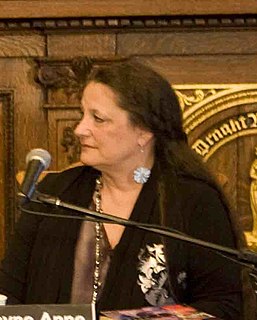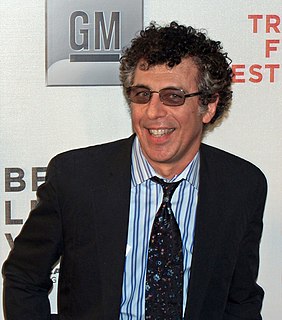A Quote by Ta-Nehisi Coates
When you write, you're inside the project. You can't really think about the reception. It has to be worth it even if no one reads it.
Related Quotes
I could never write about the sort of people John Cheever or John Updike or even Margaret Atwood write about. I don't mean I couldn't write as well as they do, which of course I couldn't; they're great writers, and I'm no writer at all. But I couldn't even write badly about normal, neurotic people. I don't know that world from the inside. That's just not my orientation.
I need to have one foot inside and one foot outside a culture to be able to write about it. For example, I couldn't write about the gay culture if I were wholly inside or outside of it. Finding that distance is always interesting. I jokingly say that when I'm in America, I write about Beirut, and when I'm in Beirut, I write about America. A lot of my friends in Beirut think I'm more American than Lebanese. Here, my friends think of me more as Lebanese.
I really only write about inner landscapes and most people don't see them, because they see practically nothing within, because they think that because it's inside, it's dark, and so they don't see anything. I don't think I've ever yet, in any of my books, described a landscape. There's really nothing of the kind in any of them. I only ever write concepts. And so I'm always referring to "mountains" or "a city" or "streets." But as to how they look: I've never produced a description of a landscape. That's never even interested me.
It was nerve-wracking [to unleash 'Life of Pi' to the world]. The first show to the journalists, that was the first one, so I was very uptight. Then I felt okay about the reception because we did a press conference with good and friendly questions, although people looked serious. So really, after the show you went to - the premiere - that reception tells me I think the movie worked, so that was a relief. I started to feel deflated.
I work via the high-tension-wire method, which is maybe going for long periods without writing while the tension builds up - when am I going to write this, am I going to be able to write this, what is this image about - and I'm thinking about it all the time, but I'm not really inside it, inside the writing.
Even though novels were the love of my life, I started off writing poetry. I think because I had a knack for image and lyricism, even though I didn't really have anything to write about, or I didn't know what to write about. I could just couple words together that pleased me and so poetry seemed sort of natural.
I try to just be open to what the next experience is and how it makes me feel, just reading a project, or trying to get involved with a project, or thinking about a project, and what particular emotional flavor that brings. To me, it's never really about planning the next thing, or the career arc. It's about investigating how I feel, from project to project, and finding things that I haven't explored and what that would be like.
































